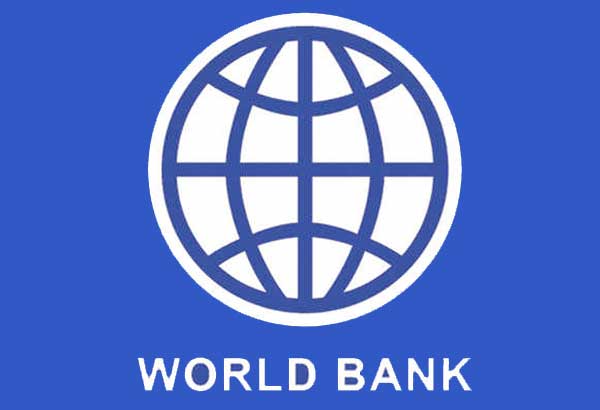 “I take this opportunity on behalf of the Government and people of Ghana, and on my own behalf, to express our gratitude to the World Bank for their continuous and unflinching support for Social Protection (SP) in Ghana and this novelty of a reverse mission.
“I take this opportunity on behalf of the Government and people of Ghana, and on my own behalf, to express our gratitude to the World Bank for their continuous and unflinching support for Social Protection (SP) in Ghana and this novelty of a reverse mission.
“I am told the idea of a co-ordinated approach to social protection in Ghana was initiated by the World Bank in 2003, and has continued ever since.
“As a country we have adopted SP as a major tool to address Poverty, vulnerability and exclusion. This underscores our desire to develop a Policy and subsequently a law to ensure the sustainability of our SP interventions,” Nana Oye Lithur Minister of Gender Children and Social Protection, stated.
Those remarks sum up the Ghana Social Protection and Labour Reverse Mission with the World Bank in Washington, which acknowledges that if social protection interventions are adequately designed and implemented, they will contribute to socio economic development, and also narrow the inequality gap.
The Ghana/WB Reverse Mission clearly pointed out the need for proper coordination of all social protection programmes in Ghana, and the development of a policy that will provide the overall institutional framework for implementation, coordination, monitoring and evaluation of Social Protection programmes in Ghana.
It has also established the fact that we can easily collaborate to make Social Protection programmes in Ghana a big success.
Ghana has benefited immensely from the mission which has provided opportunity to the country to review the Social Protection Agenda.
- Ensure better coordination of SP at the policy, programme and implementation level to enhance the systems approach and the achievement of results.
- Provide adequate and innovative financing for social protection through a budget reform to ensure sustainability.
- Scale up existing successful programmes and filling the gaps in Social Protection.
- Definition and agreement on basket of SP interventions drawing on the Social Protection rationalization report.
- Phasing of policy implementation into .short, medium and long term.
- Put in place appropriate structures, systems and processes to enhance implementation of Social Protection.
Ghana needs to enhance collaboration with Research institutions, especially for evaluation to feed into the enhancement of programmes.
“I am very hopeful for the future of Social Protection in Ghana. I wish to assure you that, we will build on all the lessons and international experiences we have been exposed to, in strengthening the implementation of social protection programmes in Ghana,” Nana Oye Lithur stated.
She, however, requested WB to support the country to;
- develop analytical capacity in social budgeting and research at our institutions particularly the Ministry of Finance and Economic Planning;
- Review the final draft of our Social Protection Policy as part of our validation process;
- Support the scaling up of our Cash Transfer and Public Works Programmes to cover all extreme poor in Ghana, and;
- Strengthen our Social Protection systems especially with respect to coordination, Monitoring and Evaluation as well as communication.
I wish to appeal to the World Bank to consider supporting the Ministry in completing work on the construction of our new office building. This will solve the acute office space challenge which is not allowing us to have the requisite number of staff to execute our expanded mandate which includes the coordination of Social Protection interventions in Ghana.
SP programmes and policies in Ghana to include: (i) social assistance; (ii) social insurance and (iii) labour market interventions and the agreement to consider four programmes as the core, flagship interventions of the Ghana SPL system (LEAP, labor intensive public works, national health insurance scheme exemptions and school feeding).
The need to scale up SPL flagship projects nationwide to cover all the extreme poor, with a special focus on the LEAP (cash transfer program) and Labor Intensive Public Works Programs.
The need to promote integration and complementarities of SPL interventions at the policy, program design and implementation level.
The commitment to align the National Medium Term Public Finance Projections and budgeting planning with SP policy goals as defined the in the SPL policy paper.
The need to improve efficiency in SPL expenditures by setting a clear results indicators for the MOF to track SP flagship programs performance, their benefit incidence, coverage of the poor and impact on poverty reduction.
Outline a clear analytical agenda (IE and assessment studies) that will inform the design and implementation of the SPL flagship interventions
Further strengthening the innovative delivery measures that will improve efficiencies such as the use of ICT; capacity building to develop new skills in relevant SPL implementation ministries and local government; and strong social mobilization.
These are the right SPL policy and implantation areas.
Mrs Mona Helen Quartey, Deputy Minister of Finance and Economic Planning believes that Ghana has made significant progress as a country with regards to effort at poverty reduction through social protection programmes;
But Ghana still has a long way to go, and a lot more to learn; and that as a nation we urgently need to introduce efficient measures both in our social protection spending in particular and social spending in general especially with regards to resource allocation and cost of delivering these programmes.
She also noted that as a country we need to institutionalize social protection, by building both analytical and institutional capacity in Ministry of Finance and other critical research institutions.
That we need to establish a robust monitoring and evaluation systems to help us demonstrate results and strengthen the case for social protection, and gain wider acceptance and support for Ghana.
Finally, that Social Protection is an investment, investment in people so they become more productive and live improved and better lives, thus contributing to GDP.
By Francis Ameyibor
Source: GNA











